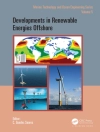The most exciting and significant episode of scientific progress is the development of thermodynamics and electrodynamics in the 19th century and early 20th century. The nature of heat and temperature was recognized, the conservation of energy was discovered, and the realization that mass and energy are equivalent provided a new fuel, – and unlimited power. Much of this occurred in unison with the rapid technological advance provided by the steam engine, the electric motor, internal combustion engines, refrigeration and the rectification processes of the chemical industry. The availability of cheap power and cheap fuel has had its impact on society: Populations grew, the standard of living increased, the envir- ment became clean, traffic became easy, and life expectancy was raised. Knowledge fairly exploded. The western countries, where all this happened, gained in power and influence, and western culture – scientific culture – spread across the globe, and is still spreading. At the same time, thermodynamics recognized the stochastic and probabilistic aspect of natural processes. It turned out that the doctrine of energy and entropy rules the world; the first ingredient – energy – is deterministic, as it were, and the second – entropy – favours randomness. Both tendencies compete, and they find the precarious balance needed for stability and change alike.
Table des matières
Temperature.- Energy.- Entropy.- Entropy as S = k ln W.- Chemical Potentials.- Third Law of Thermodynamics.- Radiation Thermodynamics.- Thermodynamics of Irreversible Processes.- Fluctuations.- Relativistic Thermodynamics.- Metabolism.












